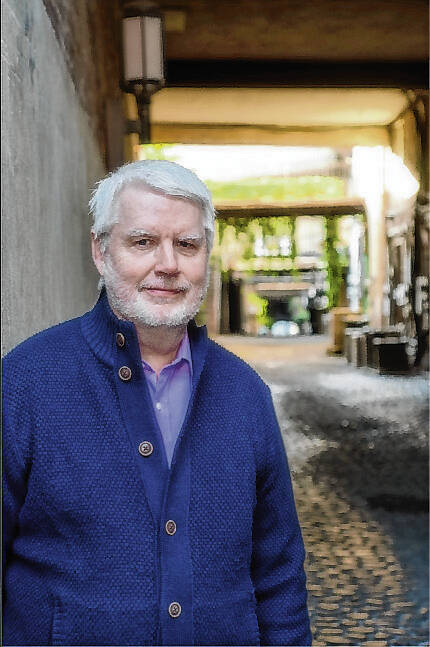
Carlson
Looking back over the years, I realize that many of my clearest Christmas memories are from when my wife and I were first married or when our boys were little.
Paradoxically, those were the days when money was tightest.
One of my favorite Christmas memories stems from when we were in graduate school in Scotland. Those were years when my wife and I literally counted pennies, or “pence,” as the smallest coins were called in Britain.
On one of those Christmases, we allowed ourselves to spend 10 pounds, the equivalent of $15, on the other person. The challenge was to buy as many gifts as possible with that amount.
Fortunately, there was a store in Aberdeen, Scotland, that carried practical but also artsy gifts.
Somehow, my wife found at least four gifts that totaled less that our limit, and I must have done the same. One of my wife’s gifts to me was a mug that we still have 50 years later.
There’s nothing unique about the mug except for the special memories it brings back.
Aberdeen, Scotland, in the early 1970s was almost the complete opposite of Southern California, where we’d lived in the first years of our marriage.
Aberdeen is close to the same latitude as Oslo, Norway, so in late December, the sun rises at 10 in the morning and sets by 2:30 in the afternoon. If the sun chose to make an appearance at all during the in-between hours, it skirted the horizon. There was no “high noon” in Scottish winters, just “low noon.”
Consequently, on winter mornings, I left for the university and my wife left for her work in the dark, and we came home in the dark.
When today, I hear the Advent carol “In the Bleak Midwinter,” I’m transported back to our three years in Aberdeen.
In addition, Christmas in Scotland in the early ’70s, unlike today, wasn’t a major holiday.
That honor went to New Year’s Eve and New Year’s Day, celebrated as Hogmanay with fireworks, lots of alcohol and parades where men whirled cages filled with hay on fire over their heads.
Christmas was considered more an English thing, and many Scots prided themselves on being “non-English.”
This meant that if Christmas were to be a festival of light for my wife and me in our years in Scotland, we’d have to provide the light. And that brings me back to my mug.
Dictionary definitions of “sentimental” begin by associating the word to emotions and tailing off to describe “sentimental” negatively as something maudlin.
I don’t dispute that an object or memory that one person holds with sentimental attachment can seem to others to have little meaning.
So naturally, if I handed you a cup of tea in this old mug, you might find the mug’s story to be a bit precious, even embarrassing. It’s just a mug, after all, isn’t it?
In the end, the mug isn’t just a mug. When I drink tea out of it, I am remembering those years in grad school when my wife never stopped encouraging me. Her support made all the difference.
Maybe you have Christmas gift — a book, a picture on the wall, or even a card — that has sentimental value for you.
No one else has to know what that gift means to you. It’s enough that you remember the person who gave it and what that person did that made a difference in your life.
David Carlson of Franklin is a professor emeritus of philosophy and religion. Send comments to [email protected].